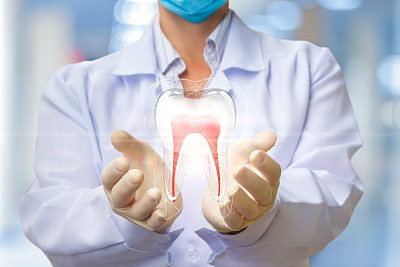Understanding the Impact of Periodontal Disease on Overall Health and Wellness for Better Preventive Care and Treatment Strategies
Summary: This article explores the profound impact of periodontal disease on overall health and wellness, emphasizing the necessity for better preventive care and treatment strategies. By understanding the connection between gum disease and systemic health issues, we can develop a comprehensive approach to prevention and management. The article highlights four critical aspects: the association between periodontal disease and systemic illnesses, the importance of early detection, effective preventive care strategies, and advancements in treatment options. Each aspect is examined in detail to provide a clearer picture of how periodontal health plays a crucial role in overall well-being, ultimately guiding individuals and healthcare providers towards more informed decisions.
1. Link Between Periodontal Disease and Systemic Illnesses

Periodontal disease, primarily characterized by inflammation of the gums and supporting structures of the teeth, extends beyond oral health to significantly influence systemic health. Research has shown a strong correlation between periodontal disease and various systemic conditions, such as heart disease, diabetes, and respiratory diseases. The underlying mechanisms involve chronic inflammation and bacteria from the gums entering the bloodstream.
For instance, the connection between periodontal disease and cardiovascular health is particularly concerning. Inflammation caused by gum disease can lead to arterial plaque buildup, increasing the risk of atherosclerosis and heart attacks. Similarly, individuals with diabetes often exhibit more severe periodontal disease, demonstrating a bi-directional relationship where each condition can exacerbate the other.
The impact extends to respiratory health, where periodontal disease can contribute to lung infections, particularly in patients with existing respiratory issues. As bacteria from the mouth are inhaled into the lungs, the risk of pneumonia and other respiratory conditions increases, highlighting the importance of maintaining optimal periodontal health.
2. Importance of Early Detection and Diagnosis
Early detection of periodontal disease is crucial for preventing its progression and mitigating its systemic health impacts. Regular dental check-ups and cleanings allow for the timely identification of gum disease before it manifests into more severe complications. Patients may not always recognize early signs, such as mild gum bleeding or discomfort, making professional evaluations vital.
Moreover, advancements in diagnostic techniques have made it easier for dental professionals to assess periodontal health. Tools like lasers and digital imaging help clinicians measure gum pocket depths and identify inflammation levels accurately. This enables targeted interventions based on individual needs, reducing the risk of long-term health consequences.
Moreover, patients must be educated on self-assessments they can perform at home. Understanding the signs of gum disease—like changes in gum color, swelling, or persistent bad breath—can encourage individuals to seek timely care. With a proactive approach to oral health, the overall health outcomes can improve significantly.
3. Effective Preventive Care Strategies
Preventive care is the cornerstone of maintaining periodontal and overall health. Routine oral hygiene practices, such as brushing twice daily and flossing, are fundamental in controlling plaque accumulation and preventing periodontal disease. However, education on effective techniques is essential; improper brushing and flossing may lead to ineffective cleaning.
Moreover, dietary choices play a significant role in gum health. Nutrient-rich foods, particularly those high in vitamins C and D, support gum tissues and help combat inflammation. On the other hand, excessive sugar intake can lead to increased plaque formation, heightening the risk of periodontal issues. Therefore, promoting a balanced diet should be an integral part of preventive strategies.
Regular professional cleanings are also essential in preventive care. Dental hygienists can remove hardened plaque (tartar) that daily brushing and flossing cannot. These cleanings not only maintain oral health but also serve as an opportunity for education on maintaining proper practices at home, fostering a comprehensive preventive care environment.
4. Advances in Treatment Options for Periodontal Disease
Treatment for periodontal disease has evolved significantly, with various approaches available depending on the severity of the condition. Non-surgical methods, such as scaling and root planing, can be highly effective, especially in early stages. These procedures focus on cleaning the pockets around teeth and smoothing the tooth roots, promoting gum reattachment and healing.
In more advanced cases, surgical options, including flap surgery or bone grafts, may be necessary. These procedures, while more invasive, aim to restore lost gum tissue and bone supporting the teeth. Continuous advancements in surgical techniques and post-operative care have led to improved patient outcomes and reduced recovery times.
Moreover, emerging therapies such as laser treatments and the use of regenerative materials are enhancing the management of periodontal disease. These cutting-edge approaches offer minimally invasive options that can result in faster recovery and more effective treatment outcomes, reflecting a promising future in periodontal care.
Summary: Understanding the impact of periodontal disease on overall health emphasizes the need for informed preventive care and treatment strategies. By recognizing the links between gum health and systemic diseases, encouraging early detection, and implementing effective preventive practices, individuals can take control of their health. Advances in treatment offer hope for those affected by periodontal disease, highlighting the importance of staying informed and proactive.
This article is compiled by Vickong Dental and the content is for reference only.



